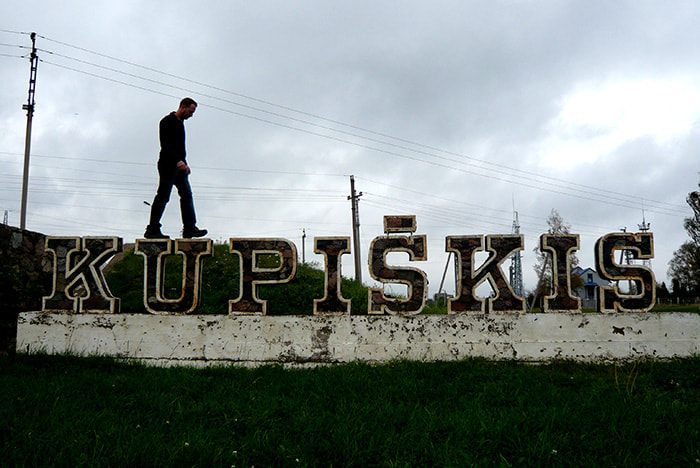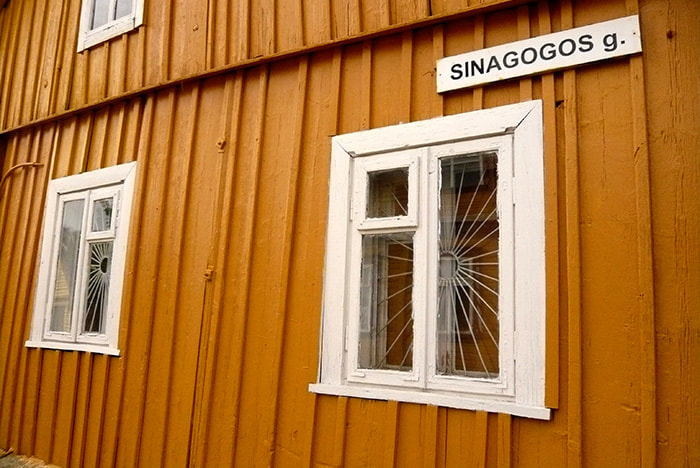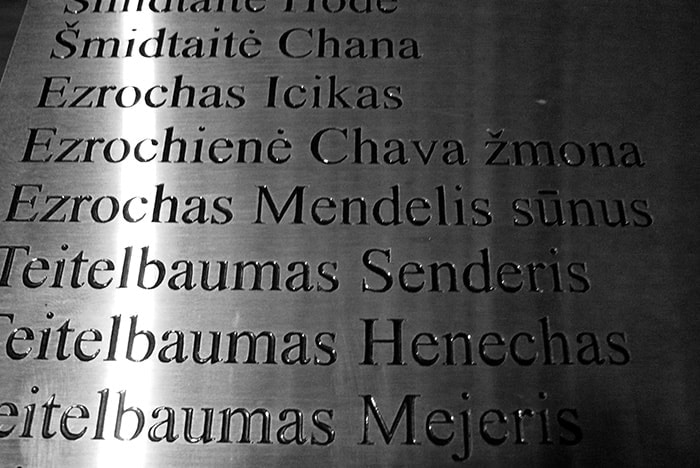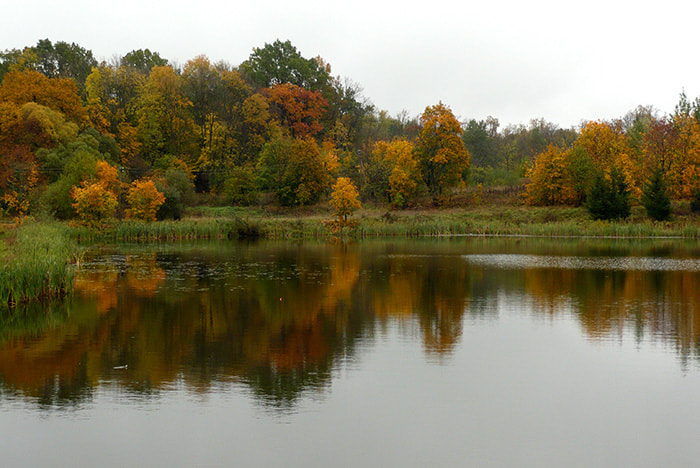|
Bucket Lists are so much more than places to see and things to do. They can teach us about the world we live in, our place within it, who we are, and where we come from. Whatever nationality you’re descended from, visiting the country of your ancestors results in rich, emotional travel. Genealogical tourism first exploded in the 1970’s, largely credited to the success of Alex Haley’s book (and subsequent television series) Roots. With the evolution of online genealogy tools - designed to make databasing and research as simple as ever – it has now become one of the busiest traffic segments online. Dedicated and enthusiastic volunteers become private investigators of their familial pasts, looking for unlikely connections, unusual stories, and answers to questions of their origins. If you think social media is addictive, try looking into your own lineage. Genealogists advise to start with what you know. I know my grandfather was born in a small village in northern Lithuania called Kupiskis. Before booking a flight to the Baltics, I hit up the All-Seeing Eye of Everything (aka Google) and found a wealth of knowledge. Kupaskis, like all shtetls in Europe, has a tragic history. Before World War II, forty-one percent of its population were Jews, all of who were rounded up and brutally murdered by local Nazi collaborators. Over three thousand men, women and children were massacred, including members of my own family. While many people travel to the countries of their heritage expecting to encounter long lost relatives, there is no chance of physically discovering a forgotten branch of my own family tree. Despite this, I headed off to Lithuania, eager to see what else I might discover. Vilnius is a lovely European capital, with big town squares, cobblestone, cheap beer, few tourists, and welcoming locals. It’s a three-hour drive from the city to Kupiskis, which is no longer a shtetl, just a small industrial town. Piloting an old rental van, the surrounding countryside explodes in the colours of fall. Each passing kilometre is one more step into the past. A bold sign on the outskirts signals I have arrived in the town. I feel like a grown turtle washing ashore on the very beach on which I was hatched. In 2004, a group of fifty Kupiskis descendents from as far away as the US, UK, South Africa, Denmark and Australia visited this small town to dedicate a memorial to the Jewish families wiped out in the war. They were greeted by the town mayor, and presented with a list of the names and ages of the victims compiled by a local midwife during the war – the only such list that exists in the country. These names are now engraved on a memorial on a plaque on the old synagogue, which is now the town’s library, and my first stop. I run my hand over the names on the memorial, stopping at several with the surname root of Ezroch. It is exhilarating to meet the names of these ancestors, and depressing to know what happened to them. I’ve found and lost new family members all at once. Late afternoon Kupaskis is half asleep, the streets deserted. Red and gold leaves cover the roads. Some locals still get around in a horse and buggy. There are a few clues of the town’s rich Jewish history; the old library, and a street named Sinagogo, still lined with century-old old wooden houses. It is cold and damp, and I wonder how my great-grandparents adjusted to the hot, dry veldt when they immigrated to South Africa before the first World War. I wonder what might have been if they didn’t. With the help of a local guide named Regina Kopilevich, who specializes in genealogical tours, I visit several mass graves, some of them with memorials, some of them with vandalized plaques. Who would deface a mass grave? The same kind of person responsible for its existence in the first place. Jews and Gentiles had co-existed peacefully here since the 16th century. Regina leads me to the ancient, wooden house of a 91 year-old local woman named Veronica. Floating in and out of lucidity, she recalls babysitting Jewish children, even singing me a few Yiddish lullabies from the depth of her memory. Her house overlooks the Freethinkers Cemetery, a nearby site of one of the worst massacres. Veronica witnessed the children in her care stripped, lined up, and murdered. “I still see their faces,” she says, “I cried and cried.” The room is freezing, as if all the joy in the world has been sucked right out of it. Veronica died a few months after my visit, taking those lullabies and horrors to her own grave.
Watch an extended clip of my visit to Kupiskis while filming my TV show, Word Travels Back in Vilnius, I spent hours researching life in Kupiskis, reading old reports, and the testimonials of survivors. I Skyped my grandmother in Johannesburg and asked questions, feeling somewhat disappointed in myself that I had never asked her these questions before. In turn, she was fascinated by what Lithuania looks like today, what has become of Kupiskis, a place that always haunted my late grandfather. Lithuania’s history did not settle. First the evils of Hitler, then Stalin, it became the first Eastern Bloc country to declare its independence from the Soviet Union in 1991. Although my own roots were dug up, I’m nevertheless drawn to country, its under-the-skin familiarity. Three of my four grandparents were Lithuanian. It must count for something. Michael, a distant cousin in New York, is an amateur genealogist and proved a great resource prior to my visit. He amassed over three thousand names on my family tree. I asked him how others should begin their personal journey. “Talk to your parents and the oldest people you can find in your family. Ask them very specific questions. Names of places, birth dates, if they have any newspaper clippings,” he told me. Every time an elder family member passes away, they take with them an important piece of the puzzle. Genealogical travel brings the rewards of travel you’ll find anywhere: beautiful landscapes, interesting new cultures, people, food, and history. Yet when you journey into the land of your heritage, it makes those rewards all the more relevant. You don’t need plane tickets or hard earned savings to begin your quest either. If you’ve ever wondered about where you come from, your Bucket List simply wants you to start asking questions. Note: There are thousands of volunteer genealogical societies worldwide who can help you start your search. Websites like Cyndis List and JewishGen contain many links to get you started, and there's all sorts of software to utilize. Talk to the people you know before going to online archives, census records, obituaries, newspaper clippings, and other sources of information. It is highly likely you’ll soon encounter a relative or enthusiast on the same path, eager to share and learn from you. Remember, when publishing personal information on websites and databases to respect others privacy.
0 Comments
|
Greetings.
Please come in. Mahalo for removing your shoes. After many years running a behemoth of a blog called Modern Gonzo, I've decided to a: publish a book or eight, and b: make my stories more digestible, relevant, and deserving of your battered attention. Here you will find some of my adventures to over 100 countries, travel tips and advice, rantings, ravings, commentary, observations and ongoing adventures. Previously...
July 2024
Categories
All
|





 RSS Feed
RSS Feed

